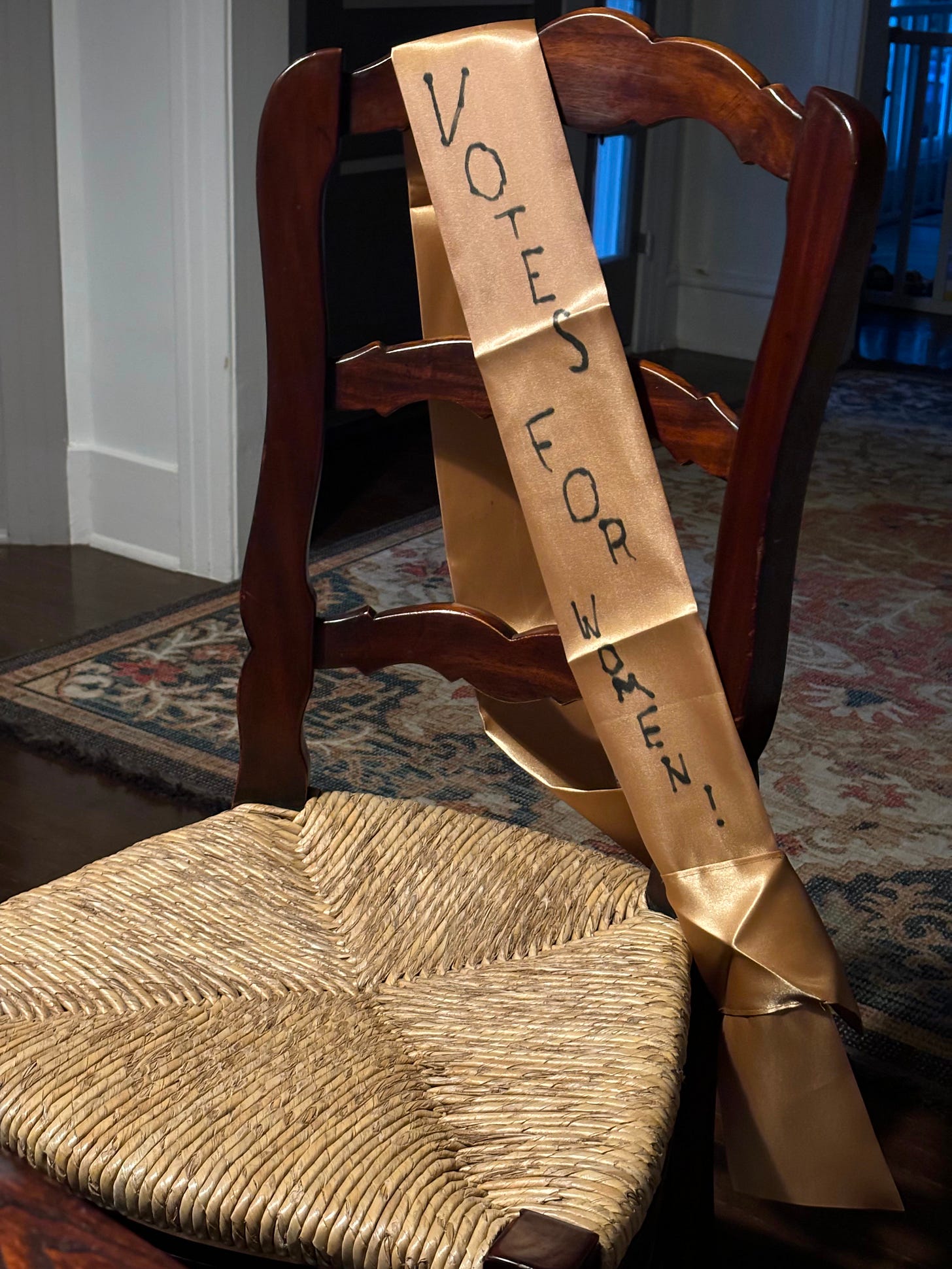Friday Civics Microdose No. 11
A candy hangover to go with your Fourth Amendment microdose
We didn’t celebrate Halloween growing up because the perspective of the churches we frequented was God didn’t approve of Halloween. Instead we had Hallelujah parties where everyone dressed up as their “favorite” Bible character (yes, I’m OK). I think I dressed up once in law school, because what else are a bunch of compulsively achieving kids going to do for fun? I was Black Swan and my friends all went as penguins.
Whoever came up with the idea that parents get to re-live childhood couldn’t have been thinking about Hallelujah v. Halloween parties (clever, if you’re into that kind of thing), but yes: Halloween is truly a new holiday to me. Hocus Pocus, spooky decorations, costumes, all being discovered just before 40. Gus loves Halloween and everything that comes with it. He’s already hooked on a classic that transports us from one season to the next, The Nightmare Before Christmas, or as he calls it, “Halloween/Christmas”, and he was born for the costume life.
I also have lots of lost costume time to make up for, which is why I was SO EXCITED when Tamar said she wanted to dress up as Mary Poppins because that meant I had to be Mrs. Banks, not because she’s the mom from Mary Poppins, but because she was a suffragette.
All it took was a sharpie and a little imagination and voila. My first real Halloween.
What does Halloween have to do with the government’s ability to go through your things? Nothing!
The Fourth Amendment
The Bill of Rights, also known as the first 10 amendments to the Constitution, isn’t something we think about on a daily basis.
If you’re an SVU or NCIS enthusiast, you probably know all about the Fourth Amendment. If words like “warrants” and phrases like “probable cause” and “on your person” are your core entertainment vernacular, well, we watch different TV.
Basically, the Fourth Amendment protects against the government searching our possessions and homes without probable cause. The legal import of “probable cause” is so far beyond the scope of this Substack, but it essentially means the government needs to have “reasonable grounds” for thinking a crime has been committed before they can search your “person”, your car, your home, etc. to find evidence that that crime actually happened.
Lindsey Cormack suggests in her book How to Raise a Citizen (And why it’s up to you to do it) that younger kids may relate to the concept of protecting their things from parent and teacher oversight (Halloween candy stash?), making the Fourth Amendment the perfect set up for nailing the oh-so-well-received point that parents and teachers don’t have to abide by the federal amendment rules against searches and seizures (because I said so is enough).
For older kids asserting independence in a real way, it’s also helpful to know that school and home “search and seizure” rules are not subject to the Fourth Amendment’s limitations, though teenagers just starting to drive may benefit from knowing the import of the Fourth Amendment if they’re pulled over by law enforcement.
Ben Sheehan points out the more contemporary implications of the Fourth Amendment when it comes to DNA (23 & Me folks?) and data privacy — another idea for a conversation-starter.
Hope this Fourth Amendment skim was helpful, even if it only ever becomes relevant when binging true crime shows on Netflix.
More soon,
Sarah





